-
 Bitcoin
Bitcoin $116700
2.16% -
 Ethereum
Ethereum $3830
5.76% -
 XRP
XRP $3.082
4.56% -
 Tether USDt
Tether USDt $1.000
0.04% -
 BNB
BNB $777.8
1.96% -
 Solana
Solana $173.2
5.46% -
 USDC
USDC $0.0000
0.02% -
 Dogecoin
Dogecoin $0.2146
6.85% -
 TRON
TRON $0.3384
0.92% -
 Cardano
Cardano $0.7676
5.51% -
 Hyperliquid
Hyperliquid $39.28
4.90% -
 Sui
Sui $3.723
9.07% -
 Stellar
Stellar $0.4164
6.32% -
 Chainlink
Chainlink $17.36
5.78% -
 Bitcoin Cash
Bitcoin Cash $580.9
3.62% -
 Hedera
Hedera $0.2544
5.50% -
 Ethena USDe
Ethena USDe $1.001
0.02% -
 Avalanche
Avalanche $22.81
3.81% -
 Litecoin
Litecoin $120.8
3.60% -
 UNUS SED LEO
UNUS SED LEO $8.956
-0.35% -
 Toncoin
Toncoin $3.311
4.28% -
 Shiba Inu
Shiba Inu $0.00001266
4.15% -
 Uniswap
Uniswap $10.10
5.97% -
 Polkadot
Polkadot $3.786
4.80% -
 Dai
Dai $1.000
0.01% -
 Monero
Monero $280.4
-4.02% -
 Bitget Token
Bitget Token $4.405
1.69% -
 Cronos
Cronos $0.1480
5.13% -
 Pepe
Pepe $0.00001087
5.67% -
 Ethena
Ethena $0.6348
11.62%
Can Exodus create multiple wallets? How to switch accounts?
Exodus supports multiple accounts for different cryptocurrencies within one wallet, allowing users to switch easily for organized and secure fund management.
May 03, 2025 at 12:21 am
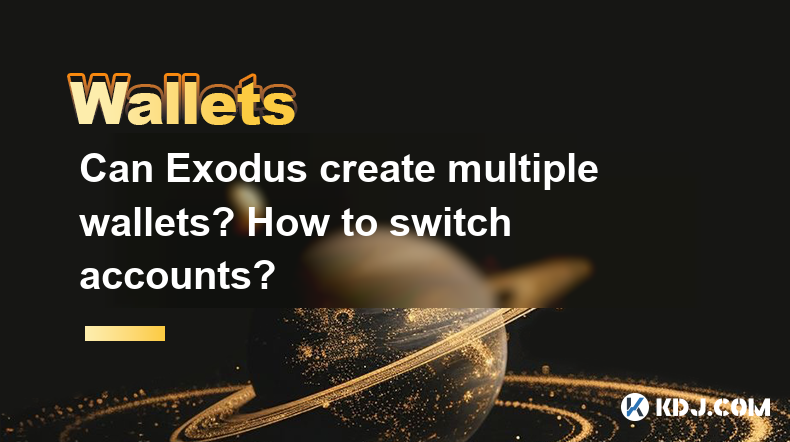
Can Exodus Create Multiple Wallets? How to Switch Accounts?
Exodus is a popular cryptocurrency wallet known for its user-friendly interface and support for a wide range of cryptocurrencies. One of the questions that users often ask is whether Exodus allows for the creation of multiple wallets within a single application, and how to switch between these accounts. In this article, we will explore these topics in detail.
Understanding Multiple Wallets in Exodus
Exodus does support the concept of multiple wallets, but it does so in a way that might be different from what some users expect. Instead of creating entirely separate wallets, Exodus allows users to manage multiple accounts for different cryptocurrencies within a single wallet application. This means that you can have different accounts for Bitcoin, Ethereum, and other supported cryptocurrencies all within the same Exodus wallet.
How to Create Multiple Accounts in Exodus
Creating multiple accounts in Exodus is straightforward and can be done for each supported cryptocurrency. Here's how you can set up multiple accounts for different cryptocurrencies:
- Open the Exodus wallet on your device.
- Navigate to the portfolio view by clicking on the "Wallet" tab at the bottom of the screen.
- Select the cryptocurrency for which you want to create a new account.
- Click on the three dots at the top right corner of the screen.
- Choose "Add Account" from the dropdown menu.
- Follow the prompts to create a new account for the selected cryptocurrency.
You can repeat these steps for each cryptocurrency you wish to manage multiple accounts for. This allows you to keep your funds organized and separated within the same wallet.
Managing and Switching Between Accounts
Once you have created multiple accounts for different cryptocurrencies, you'll need to know how to switch between them. Here's how you can manage and switch between accounts in Exodus:
- Open the Exodus wallet and go to the "Wallet" tab.
- Select the cryptocurrency for which you have multiple accounts.
- Click on the account name at the top of the screen. This will open a dropdown menu showing all the accounts you have created for that cryptocurrency.
- Select the account you want to switch to from the list.
This simple process allows you to quickly switch between different accounts for the same cryptocurrency, making it easy to manage your funds.
Benefits of Multiple Accounts in Exodus
Using multiple accounts within Exodus can offer several benefits:
- Organization: Having multiple accounts helps you keep your funds organized. For example, you might have one account for personal use and another for business transactions.
- Security: By separating your funds into different accounts, you can enhance your security. If one account is compromised, your other accounts remain safe.
- Privacy: Multiple accounts can help you maintain privacy by keeping different aspects of your financial life separate.
Limitations of Multiple Accounts in Exodus
While Exodus's approach to multiple accounts is useful, it's important to understand its limitations:
- No Separate Wallets: Exodus does not support the creation of entirely separate wallets. All accounts are managed within the same wallet application.
- Single Backup: All accounts within Exodus are backed up using the same 12-word recovery phrase. If someone gains access to this phrase, they can access all your accounts.
- No Account-Level Passwords: Exodus does not allow you to set separate passwords for different accounts. The security of all accounts relies on the same password and recovery phrase.
Practical Example: Using Multiple Accounts for Bitcoin and Ethereum
Let's consider a practical example of how you might use multiple accounts in Exodus. Suppose you want to manage both Bitcoin and Ethereum, and you want to keep your personal and business funds separate.
For Bitcoin:
- Create one account for personal use.
- Create another account for business transactions.
For Ethereum:
- Create one account for personal use.
- Create another account for business transactions.
You can follow the steps outlined earlier to create these accounts. Once created, you can easily switch between them using the method described in the "Managing and Switching Between Accounts" section.
Frequently Asked Questions
Q: Can I use the same recovery phrase for multiple Exodus wallets on different devices?
A: No, the recovery phrase is unique to each Exodus wallet. If you want to access the same wallet on multiple devices, you need to use the same recovery phrase on all devices.
Q: Is it possible to import an existing wallet into Exodus and manage it alongside other accounts?
A: Yes, you can import existing wallets into Exodus. For example, you can import a Bitcoin wallet using a private key or a recovery phrase. Once imported, it will be managed as an account within your Exodus wallet.
Q: Can I set different passwords for different accounts within Exodus?
A: No, Exodus does not support setting different passwords for different accounts. All accounts within the same wallet use the same password and recovery phrase for security.
Q: How can I ensure the security of my multiple accounts in Exodus?
A: To ensure the security of your multiple accounts, always use a strong password, enable two-factor authentication if available, and keep your recovery phrase safe and offline. Regularly back up your wallet and be cautious of phishing attempts.
Disclaimer:info@kdj.com
The information provided is not trading advice. kdj.com does not assume any responsibility for any investments made based on the information provided in this article. Cryptocurrencies are highly volatile and it is highly recommended that you invest with caution after thorough research!
If you believe that the content used on this website infringes your copyright, please contact us immediately (info@kdj.com) and we will delete it promptly.
- Ollama Turbo & GPT-OSS: Revolutionizing AI Model Accessibility and Speed
- 2025-08-07 20:29:33
- Bitcoin Ordinals: NFTs Evolving Bitcoin or a Fleeting Fad?
- 2025-08-07 20:29:33
- BlockchainFX, Bitcoin Swift, Crypto Presales: What's the Hype?
- 2025-08-07 19:10:13
- Pepe Dollar (PEPD) vs. SPX6900: The Meme Coin Battle of 2025
- 2025-08-07 19:50:12
- XRP Investment Regret: Are You Missing Out on the Next Big Thing?
- 2025-08-07 19:50:12
- XRPINU: More Than Just a Meme? Roadmap, Liquidity, and the Future of Funny Money
- 2025-08-07 19:56:46
Related knowledge
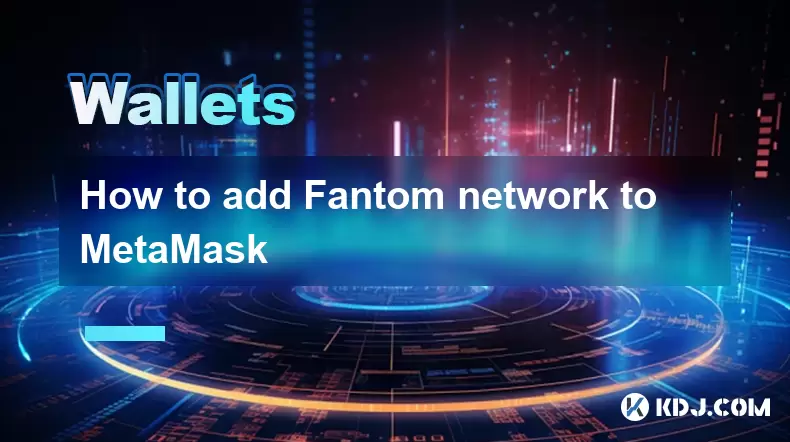
How to add Fantom network to MetaMask
Aug 07,2025 at 08:21am
Understanding the Fantom Network and MetaMask IntegrationThe Fantom network is a high-performance, scalable, and secure blockchain platform designed f...
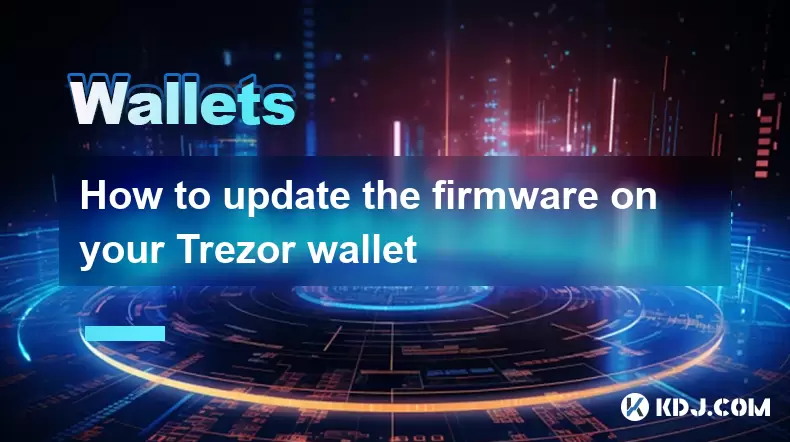
How to update the firmware on your Trezor wallet
Aug 07,2025 at 05:00pm
Understanding the Role of Staking in Cryptocurrency EcosystemsStaking has become a fundamental component of many blockchain networks that operate unde...
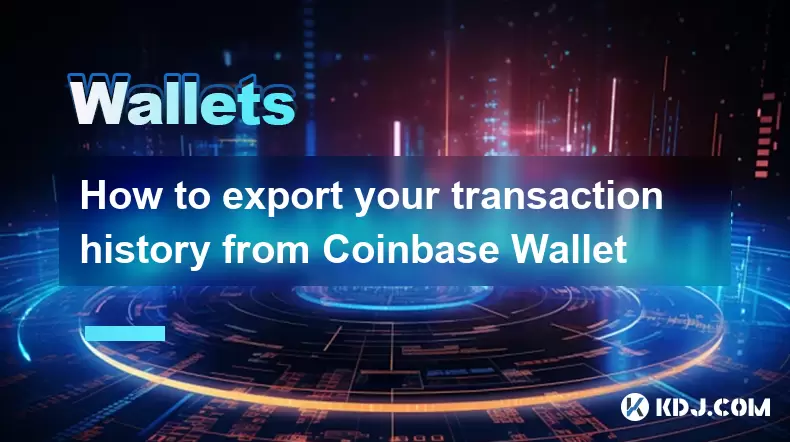
How to export your transaction history from Coinbase Wallet
Aug 07,2025 at 06:50am
Understanding Coinbase Wallet and Transaction HistoryCoinbase Wallet is a self-custodial cryptocurrency wallet that allows users to store, manage, and...
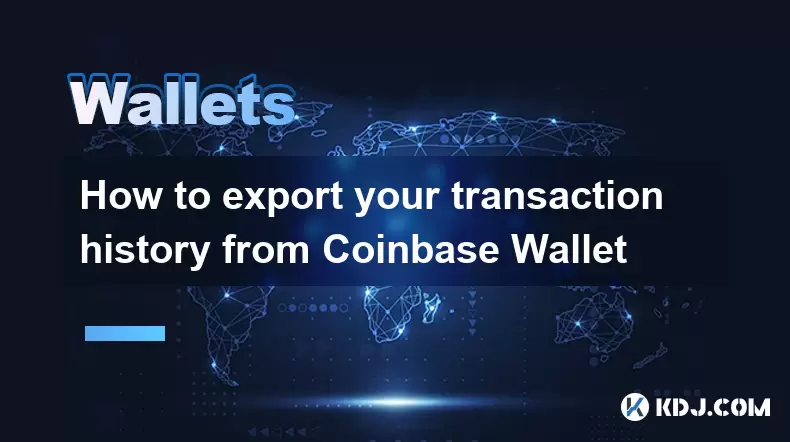
How to export your transaction history from Coinbase Wallet
Aug 07,2025 at 08:49am
Understanding Coinbase Wallet and Transaction HistoryCoinbase Wallet is a self-custodial cryptocurrency wallet that allows users to store, manage, and...
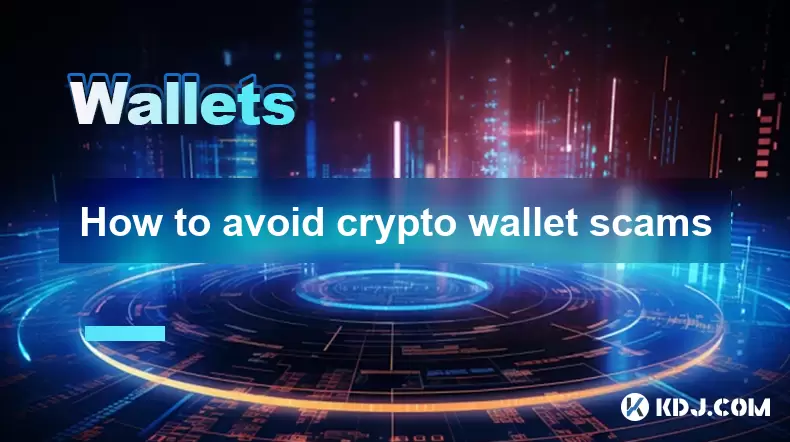
How to avoid crypto wallet scams
Aug 07,2025 at 02:21pm
Understanding Common Types of Crypto Wallet ScamsCrypto wallet scams come in various forms, each designed to exploit user trust, technical ignorance, ...
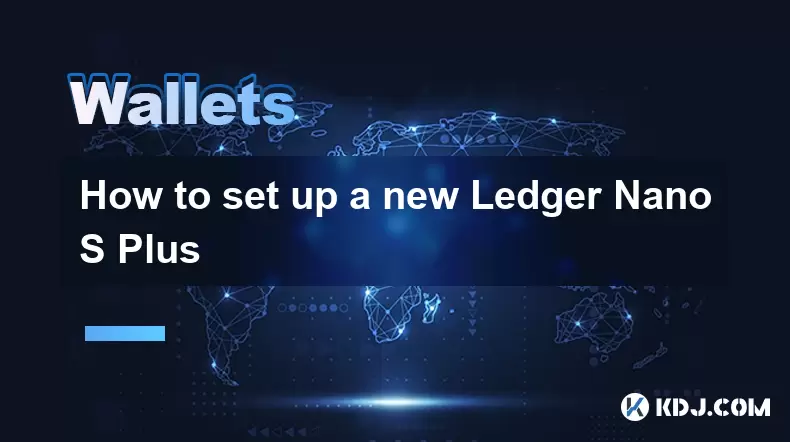
How to set up a new Ledger Nano S Plus
Aug 07,2025 at 06:01am
Unboxing and Initial InspectionWhen you receive your Ledger Nano S Plus, begin by carefully unboxing the package. Inside, you should find the Ledger N...

How to add Fantom network to MetaMask
Aug 07,2025 at 08:21am
Understanding the Fantom Network and MetaMask IntegrationThe Fantom network is a high-performance, scalable, and secure blockchain platform designed f...

How to update the firmware on your Trezor wallet
Aug 07,2025 at 05:00pm
Understanding the Role of Staking in Cryptocurrency EcosystemsStaking has become a fundamental component of many blockchain networks that operate unde...

How to export your transaction history from Coinbase Wallet
Aug 07,2025 at 06:50am
Understanding Coinbase Wallet and Transaction HistoryCoinbase Wallet is a self-custodial cryptocurrency wallet that allows users to store, manage, and...

How to export your transaction history from Coinbase Wallet
Aug 07,2025 at 08:49am
Understanding Coinbase Wallet and Transaction HistoryCoinbase Wallet is a self-custodial cryptocurrency wallet that allows users to store, manage, and...

How to avoid crypto wallet scams
Aug 07,2025 at 02:21pm
Understanding Common Types of Crypto Wallet ScamsCrypto wallet scams come in various forms, each designed to exploit user trust, technical ignorance, ...

How to set up a new Ledger Nano S Plus
Aug 07,2025 at 06:01am
Unboxing and Initial InspectionWhen you receive your Ledger Nano S Plus, begin by carefully unboxing the package. Inside, you should find the Ledger N...
See all articles

























































































